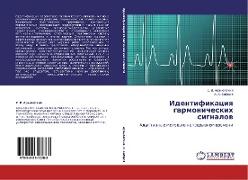Criminal-Inquisitorial Trials in English Church Courts
BücherAngebote / Angebote:
After inquisitorial procedure was introduced at the Fourth Lateran Council in Rome in 1215 (the same year as England's first Magna Carta), virtually all court trials initiated by bishops and their subordinates were inquisitions. That meant that accusers were no longer needed. Rather, the judges themselves leveled charges against persons when they were publicly suspected of specific offenses--like fornication, or witchcraft, or simony. Secret crimes were off limits, including sins of thought (like holding a heretical belief). Defendants were allowed full defenses if they denied charges. These canonical rules were systematically violated by heresy inquisitors in France and elsewhere, especially by forcing self-in-crimination. But in England, due process was generally honored and the rights of defendants preserved, though with notable exceptions. In this book, Henry Ansgar Kelly, a noted forensic historian, describes the reception and application of inquisition in England in the thirteenth century onwards and analyzes all levels of trial proceedings, both minor and major, from accusations of sexual offenses and cheating on tithes to matters of religious dissent. He covers the trials of the Knights Tem-plar early in the fourteenth century and the prosecutions of followers of John Wyclif at the end of the century. He details how the alleged crimes of "criminous clerics" were handled, and demonstrates that the judicial actions concerning Henry VIII's marriages were inquisitions in which the king himself and his queens were defendants. Trials of Alice Kyteler, Margery Kempe, Eleanor Cobham, and Anne Askew are explained, as are the unjust trials condemning Bishop Reginald Pecock of error and her-esy (1457-59) and Richard Hunne for defending English Bibles (1514). He deals with the trials of Lutheran dissidents at the time of Thomas More's chancellorship, and trials of bishops under Edward VI and Queen Mary, including those against Stephen Gardiner and Thomas Cranmer. Under Queen Elizabeth, Kelly shows, there was a return to the letter of papal canon law (which was not true of the papal curia). In his conclusion he re-sponds to the strictures of Sir John Baker against inquisitorial procedure, and argues that it compares favorably to the common-law trial by jury.
Folgt in ca. 15 Arbeitstagen


![A Tour Through Upper and Lower Canada [microform]](https://support.digitalhusky.com/media/annotations/sorted/425/42550338/CHSBZCOP0342550338.jpg)

